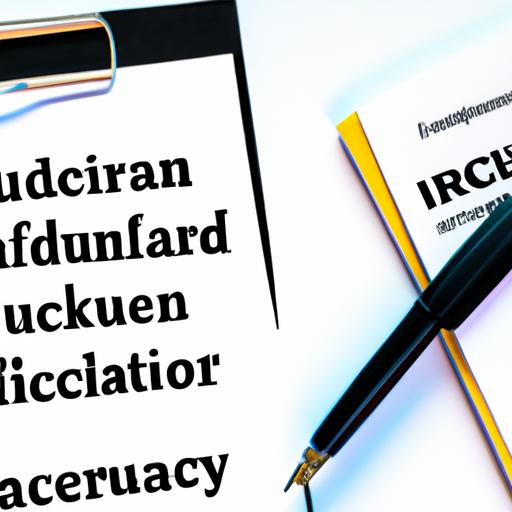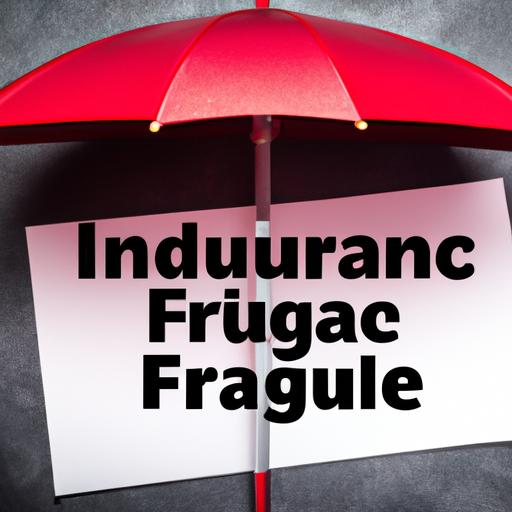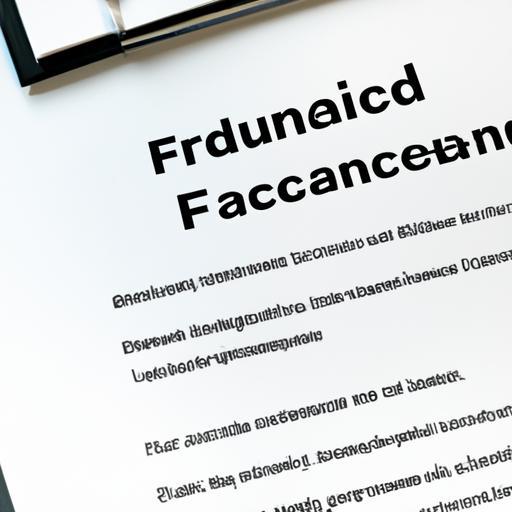In a world where trust is often a scarce commodity, the insurance industry is no exception to the prevalence of fraud and deceit. However, a glimmer of hope shines through the murky waters of distrust in the form of blockchain technology. With its immutable and decentralized nature, blockchain has the power to revolutionize the way insurance documentation is handled, providing a fraud-proof solution that restores faith in the system. Let’s delve into the world of blockchain in insurance and explore how this innovative technology is changing the game for good.
Table of Contents
- 1. The Rise of Fraud in the Insurance Industry
- 2. Understanding the Power of Blockchain Technology
- 3. How Blockchain is Transforming Insurance Documentation
- 4. The Key Benefits of Fraud-Proof Documentation with Blockchain
- 5. Implementing Blockchain in the Insurance Sector
- 6. The Future of Fraud Prevention in Insurance with Blockchain Technology
1. The Rise of Fraud in the Insurance Industry
Insurance fraud has been on the rise in recent years, posing significant challenges for the industry. There are various factors contributing to this increase, including advances in technology that make it easier for individuals to manipulate and exploit the system. Additionally, the growing complexity of insurance policies has created loopholes that fraudsters are quick to exploit for personal gain.
While insurance companies have implemented measures to curb fraud, perpetrators continue to devise new schemes to evade detection. The rise of fraudulent activities not only impacts the financial stability of insurance companies but also raises premiums for honest policyholders, ultimately eroding trust in the industry as a whole.

2. Understanding the Power of Blockchain Technology
Blockchain technology is revolutionizing the way we conduct transactions and store data. Its decentralized and secure nature ensures that information cannot be altered or tampered with, making it a powerful tool for industries across the board. By utilizing blockchain, individuals and organizations can streamline processes, increase transparency, and reduce the need for intermediaries.
One of the key features of blockchain technology is its ability to create a permanent and immutable record of transactions. Each block contains a unique cryptographic hash that links it to the previous block, forming a chain of data that cannot be altered without the consensus of the network. This level of security has made blockchain a popular choice for industries such as finance, healthcare, and supply chain management, where data integrity is of utmost importance. With the potential to revolutionize industries worldwide, is essential for staying ahead in the digital age.
3. How Blockchain is Transforming Insurance Documentation
Blockchain technology is revolutionizing the insurance industry by streamlining the documentation process. Through the use of decentralized and secure ledgers, insurers can now easily access and verify policies, claims, and other important documents. This transparency and immutability provided by blockchain eliminate the risk of fraud and errors, ultimately increasing trust among all parties involved.
Additionally, blockchain technology allows for the creation of smart contracts, which can automate claims processing and payouts based on predefined conditions. This not only speeds up the claims process but also reduces administrative costs for insurers. With blockchain, insurers can provide a more efficient and reliable service to their customers, ensuring a smoother experience for all stakeholders involved in the insurance process.
4. The Key Benefits of Fraud-Proof Documentation with Blockchain
By utilizing blockchain technology for documentation, businesses can ensure the authenticity and integrity of their records. This fraud-proof system offers numerous benefits, including:
- Increased Security: Blockchain employs cryptographic techniques to secure data, making it nearly impossible for unauthorized parties to alter or tamper with documents.
- Transparency: The decentralized nature of blockchain allows for transparent and traceable transactions, enhancing trust among parties involved in the documentation process.
- Improved Efficiency: With blockchain, there is no need for intermediaries or third parties to validate documents, streamlining the verification process and reducing the likelihood of errors.
Furthermore, blockchain technology reduces the risk of fraud by providing a tamper-proof audit trail that can be easily accessed and verified by authorized individuals. This level of security and transparency not only protects businesses from potential fraud but also enhances overall trust and credibility in the documentation process.
5. Implementing Blockchain in the Insurance Sector
The implementation of blockchain technology in the insurance sector has the potential to revolutionize the way insurance policies are managed and claims are processed. By utilizing blockchain, insurers can ensure greater transparency, security, and efficiency in their operations. Through the use of smart contracts, policyholders can enjoy quicker claim settlements and reduced fraud risks.
Furthermore, blockchain can streamline the underwriting process by allowing insurers to access real-time data, eliminating the need for manual paperwork. This not only saves time but also reduces operational costs. With the ability to create immutable records of transactions, insurers can enhance trust among policyholders and stakeholders. implementing blockchain technology in the insurance sector has the power to redefine the industry and provide better services to customers.
6. The Future of Fraud Prevention in Insurance with Blockchain Technology
In the ever-evolving landscape of insurance fraud prevention, blockchain technology stands as a beacon of hope for the future. By utilizing decentralized, transparent, and immutable ledgers, insurers can effectively combat fraudulent claims and streamline their processes. With blockchain, the entire insurance ecosystem can become more secure, efficient, and trustworthy.
Through the implementation of smart contracts, insurers can automate claim verification processes, reducing the possibility of human error and manipulation. Additionally, blockchain technology enables real-time data sharing among insurers, leading to faster detection and prevention of fraudulent activities. With blockchain’s ability to create a tamper-proof audit trail, insurers can ensure data integrity and enhance customer trust in the industry.
the integration of blockchain technology in the insurance industry provides a powerful solution to combat fraud and increase transparency in the documentation process. By leveraging blockchain’s immutable and secure ledger system, insurers can ensure that their data remains tamper-proof and verifiable, ultimately increasing trust among all parties involved. As blockchain continues to revolutionize the way we handle transactions, it is clear that the future of insurance lies in embracing this innovative technology. Stay tuned for more updates on how blockchain is transforming the insurance landscape. Thank you for reading!
